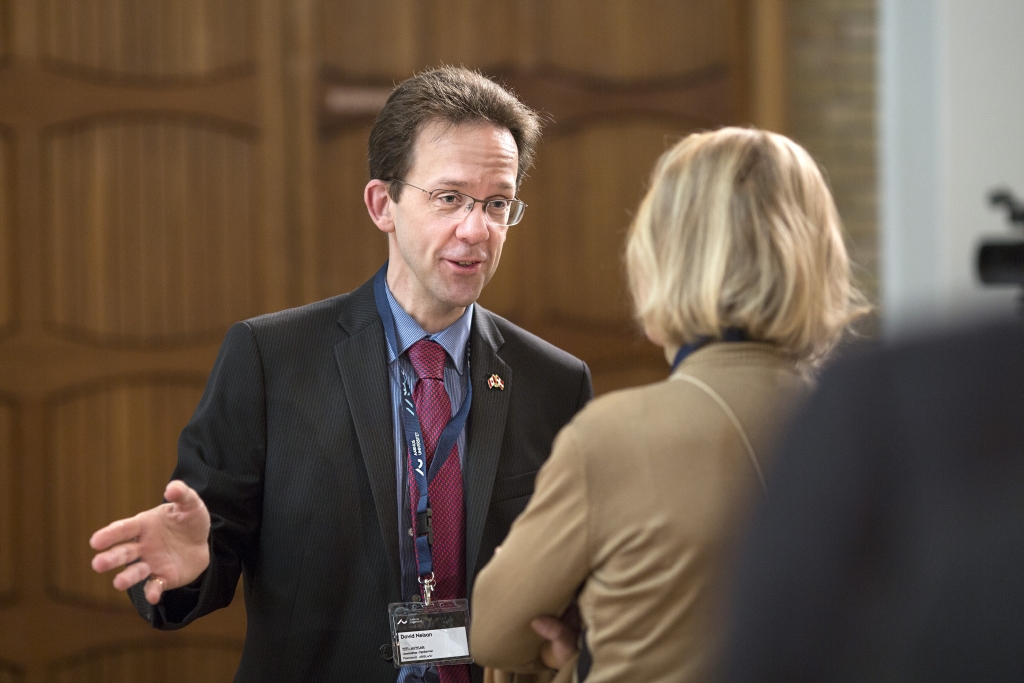Electoral expert Jørgen Elklit rounds off his 50-year career
Jørgen Elklit celebrates 50 years as a researcher and resigns as a professor at Aarhus University. However, the internationally recognised electoral expert and adviser for fledging democracies, and democracies affected by conflict will continue to share his knowledge in research and dissemination projects.
![[Translate to English:] Professor Jørgen Elklit foran Aarhus Universitet [Translate to English:] Professor Jørgen Elklit foran Aarhus Universitet](/fileadmin/news_import/Joergen_Elklit_LK_138__1_.jpg)
It is very rare that academics remain with the same department for 50 years. Nevertheless, this is the case for Jørgen Elklit, professor of political science at Aarhus BSS, Aarhus University. In 1970, Jørgen Elklit joined the Department of Political Science as a research fellow, and continued his career in the department until the present day. In 2000, he was appointed professor with a focus on election and local government affairs, and the German minority etc. In 1988, he received his doctoral degree in political science for his dissertation on the transition from open to secret ballot in Denmark in 1901. He has been a prolific researcher, and a well-liked colleague and lecturer at the university.
“Jørgen Elklit is a comprehensive, practice-oriented and prolific researcher, and despite his impressive age, he is still as productive as ever. Many people within and outside the department owe him much gratitude for his commitment as researcher and lecturer,” says Peter Munk Christiansen, head of the Department of Political Science.
Alongside his research career, Jørgen Elklit has also worked outside of the yellow-brick walls as an adviser on electoral and voting systems in new democracies, and democracies affected by conflict. It all started in Nepal in 1990 where he helped establish the framework for the country’s first democratic election. Since then, a number of other countries have asked for his assistance including Afghanistan, Bosnia-Herzegovina, Lesotho, China, Kenya, Mauritius, Iraq and Mongolia.
The pinnacle of his career was in 1994, when as a member of South Africa’s Independent Electoral Commission, he was partly responsible for the development of the election which marked the transition from apartheid to democracy. Later, he had other assignments in South Africa where he was also a visiting professor at the University of Cape Town.
His many advisory roles all over the world have earned him accolades and several awards. These include two from the Electoral Commission of South Africa (IEC) (the Ten years of Democracy Award and the 20 years of Electoral Democracy Award) and the Joe Baxter Award. Aarhus BSS and Aarhus University Anniversary Foundation have also honoured him with awards for extraordinary research communication related to his international work. He was also the first recipient of the Danish Political Science Association Erik Rasmussen award. As a young history student, he was awarded a gold medal by Aarhus University for his research into the 1845 census.
“I am sincerely grateful that I have been able to use my competences in countries where there was a need for my specific brand of knowledge,” says Jørgen Elklit.
Jørgen Elklit now lives in Stockholm and Mariestad in Sweden with literature researcher and former member of the Swedish parliament Birgitta Wistrand. On numerous occasions, they have spoken out and written about the issue of voting confidentiality in Swedish elections. This has put the integrity of the Swedish election on the agenda, and we will probably hear much more from Jørgen Elklit, who intends to continue his many research and dissemination projects despite formally retiring.
- Jørgen Elklit will deliver his farewell lecture at the Department of Political Science on Friday 31 January 2020. A reception will be held afterwards. The title of the lecture is ‘Verdens bedste valgsystem?’ (The World’s Best Election System?’). The lecture will be held in Danish. Everyone is welcome!
- If you would like to hear more about Jørgen Elklits fascinating experiences as an international adviser and electoral expert, we recommend the podcast ‘Verdensmestre i valg’ (World Champions in Elections) (in Danish) or the book on elections in Aarhus University’s Reflection series (in Danish).
- Jørgen Elklit’s CV is also available on his personal website.
